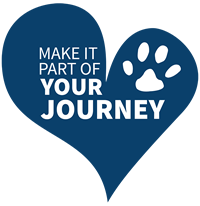Out of Hours Advice
Advice when USPCA Rescue Service is not available
The USPCA operates a wildlife rescue service seven days a week from 9.00am to 5.00pm, October to March. From May to September the service runs from 9.00am to 8.00pm Monday to Friday and 9.00am to 6.00pm Saturday and Sunday. Outside of these hours please follow the guidelines below.
Life Threatening Injuries
It is understandable for the public to be concerned when they come across an animal which may appear vulnerable, however not all wild animals need assistance or rescued. Immediate attention is only required where the animal has suffered a life-threatening injury. The following injuries would be deemed as life threatening.
Large Animal - This would include swans, badgers, foxes and buzzards.
Contact your nearest veterinary practice and ask for the vet on call. An injured animal is often in pain, this can lead to aggressive behaviour. If this is the case, please DO NOT put yourself at risk. If the animal’s location or behaviour poses a hazard to the public or to passing vehicles you must inform the PSNI immediately on 101.
- Road traffic casualty
- Obvious extensive open wound
- Unresponsive/unconscious
- Dog or cat attack
- Fox or badger caught in a snare
- Swan covered in oil
Small Animal - This would include gulls, birds and hedgehogs.
- Unresponsive hedgehog out of its nest
- Obvious extensive open wound
- Baby hedgehog with an obvious wound
- Unresponsive/unconscious
- Bird lying on its side
- Dog or cat attack
Place in a secure box with air holes and take it to your nearest veterinary practice to be examined. Wear gloves or use a towel to protect your hands. Ring in advance to arrange for the on call vet.
Non-Life-Threatening Injuries
Large Animal - This would include swans, badgers, foxes and buzzards.
Contact the USPCA in the morning to arrange for one of our Rescue Officers to attend the animal.
Small Animal - This would include gulls, birds and hedgehogs.
Place in a secure box with air holes. Wear gloves or use a towel to protect your hands. If the animal is cold, keep warm with a heat pad or water bottle. Ensure there is enough space for the animal to move away from the heat source if it becomes too warm. Bring home and take to your nearest veterinary practice in the morning to be examined. You can also ring the USPCA to obtain a veterinary voucher to cover the cost of veterinary treatment.
Baby Birds
Nestling: (Few or no feathers) – Place back in nest which will be nearby.
Fledgling: (Fully feathered) – It will be learning to fly. Leave alone, its parents will be watching!
Injured Baby Bird: Follow the guidelines above
Back








